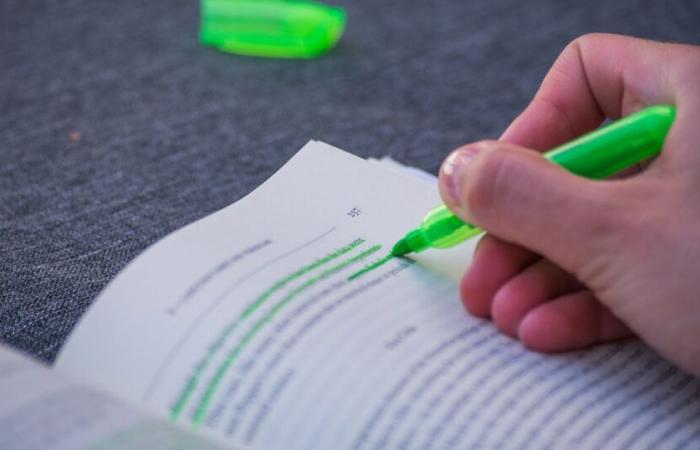The Bogotá International Book Fair (Filbo) 2025 has a special program in Pavilion 3, Stand 536, where interactive activities are offered and more than 17,000 books are sought for free. The initiative seeks to foster access to reading through different experiences designed for audiences of all ages.
Among the activities that can be enjoyed during the event, which is held from April 25 to May 11 in Corferias, highlights the whisper, a character that recites phrases in a low voice related to the theme of rituals. Also The literary cabin will be available, where attendees can listen to stories through headphones in a closed space, and the literary concent based on characters and themes of distributed books.
Now you can follow us in our WhatsApp Channel and in Facebook.

The event will also serve as the stage for the launch of the book Rituals Repetitions for time to takewhich is part of a collection of stories that already has twenty published titles. This new installment analyzes daily routines as practices with symbolic burden and raises questions such as: “What practices contribute to a life with meaning and which ones reproduce forms of alienation?”
The proposal is accompanied by an enlightened stickers collection that will be delivered as an incentive to those who interact with the organization’s social networks during the fair. All this is part of an editorial project that since 2003 has distributed more than 1.3 million books in Colombia, Financed with part of the surpluses of the entity responsible for this initiative that is to trust Financial Cooperative.
With 53 years of experience, the cooperative argues that, “writing, edition and reading are practices that allow you to think critically and build collective senses.” Its editorial line seeks to strengthen cultural participation, especially in contexts marked by inequality.

Since its creation, this editorial policy received an investment of more than 1.9 billion pesos. Its approach is not limited to the production of books, but is committed to the generation of knowledge and the construction of community through written culture.
In an environment marked by structural inequalities, access to reading and cultural participation are not always guaranteed. Books, considered fundamental tools for the development of critical thinking, citizen training and strengthening the social fabric, remain an inaccessible good for many sectors of the population. Given this reality, social projects that promote free and open reading charge special relevance.
Promoting reading is not just an educational issue, but also a commitment to equity and social transformation. when an organization decides to invest in the production and distribution of books without any cost for readers, it is not only promoting the reading habit, but is directly intervening in the democratization of knowledge. These types of initiatives contribute to closing cultural gaps and guarantee that more people, regardless of their origin or economic situation, can access quality content and actively participate in cultural life.

Besides, Publications promoted by community editorial projects usually respond to local realities, collective interests and questions that are not always addressed in the commercial circuits of the book. In this sense, the literary offer is extended, the voices and narratives available for readers are also diversified. Written culture, when born from the community and circulates freely, can become a powerful tool to build memory, identity and critical reflection.
On the other hand, the participatory approach of many of these proposals, which combine reading with interactive experiences, games, sensory activities or digital participation, allows the book to cease to be a passive object and become a vehicle for the meeting, conversation and collective creativity. These types of strategies are especially effective in capturing the interest of young or unusual audiences to reading, thus expanding the scope and impact of the project.










